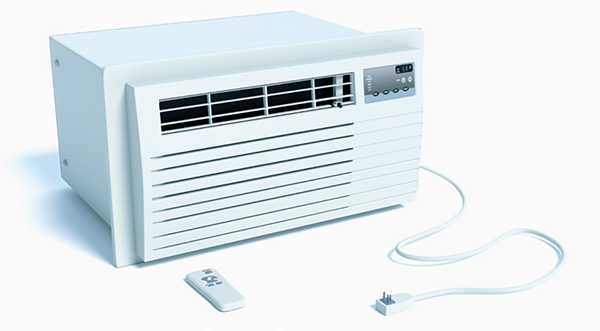In today’s fast-paced digital world, a business’s success heavily relies on its ability to manage and secure its IT infrastructure effectively. Whether you’re running a large corporation or a small business, the importance of having a reliable IT system is undeniable. One of the most crucial decisions any business owner will face when setting up their IT infrastructure is whether to invest in a server room for installation.
The concept of a server room may sound intimidating, especially for small businesses that are still growing. However, understanding the role it plays and how it contributes to your IT needs can be a game-changer. In this blog, we will delve into why a server room might be necessary, how it affects your business operations, and the role of Server Installation Services in the process.
What is a Server Room?
A server room is a dedicated space where an organization houses its IT hardware, including servers, storage devices, networking equipment, and other critical components. The primary function of a server room is to store, manage, and protect these essential systems that ensure smooth business operations.
While large enterprises typically invest in expansive server rooms with high-end cooling, security systems, and other features, small businesses often wonder if they require such an investment. In many cases, small businesses may choose to outsource their IT needs to avoid the costs of maintaining a server room. However, understanding the benefits and trade-offs of a server room will help you make the best decision for your business.
The Importance of Having a Server Room
When it comes to managing your IT infrastructure, there are a number of benefits to having a dedicated server room. Some of the main reasons why you might consider setting up a server room for your business include:
1. Improved Security
A server room allows you to maintain greater control over the security of your data and IT systems. With a dedicated space, you can implement physical security measures, such as access control systems, surveillance cameras, and restricted entry points. These precautions help to minimize the risk of theft, damage, or unauthorized access to your critical business data.
2. Better Performance
A well-organized server room can enhance the overall performance of your business’s IT infrastructure. With the right equipment and setup, servers can run more efficiently, reducing the risk of downtime or lag that could negatively impact your operations.
3. Scalability
As your business grows, your IT needs will evolve. Having a server room in place allows you to scale your infrastructure more easily. You can add new servers, storage devices, and networking equipment without having to worry about running out of space or facing logistical challenges.
4. Control Over Maintenance
By housing your own servers and IT equipment, you can maintain full control over how and when maintenance is performed. This means you can ensure your systems are updated regularly, hardware failures are minimized, and your IT environment is optimized for performance.
Do Small Businesses Need a Server Room?
The need for a server room largely depends on the scale of your business and the nature of your IT requirements. For small businesses with limited IT needs, a full-scale server room might not be necessary. However, there are several factors to consider when making this decision.
1. Business Size and Growth Plans
If your business is growing rapidly or you deal with a lot of sensitive customer data, having a dedicated server room can be a worthwhile investment. A server room provides the necessary infrastructure to support your IT needs as your business expands.
2. IT Support for Small Business
If you’re currently relying on third-party IT services, you may not need a physical server room. In such cases, IT support for small business providers often offer cloud-based solutions that eliminate the need for on-premises infrastructure. This can save you money on physical hardware, cooling costs, and space requirements.
3. Cost and Space Constraints
Small businesses often face challenges when it comes to available office space and budget constraints. If you’re working in a small office and don’t have the budget for a dedicated server room, outsourcing your IT infrastructure or using cloud hosting services may be a more cost-effective solution.
4. Remote Working
In today’s world, remote work is increasingly common, and businesses are turning to cloud-based solutions to facilitate remote access. If most of your employees work from home or other locations, having a physical server room might not be essential. Instead, you can rely on cloud storage and remote servers to manage your data securely.
The Role of Server Installation Services
Setting up a server room or installing servers for your business can be a complex task that requires technical expertise. Whether you decide to house your servers in a physical space or leverage cloud services, working with professional Server Installation can ensure that your infrastructure is set up correctly from the beginning.
These services typically include:
-
Site Assessment: Professional installation services assess your office space to determine the best layout for your servers and networking equipment.
-
Configuration: Server installation services handle the configuration of your servers and ensure they are optimized for performance.
-
Maintenance: Ongoing support and maintenance to ensure that your servers are functioning correctly and securely.
-
Troubleshooting: In case of any issues, installation services offer troubleshooting and technical support to keep your systems up and running.
By working with experts in server installation, you can rest assured that your IT infrastructure is set up for optimal performance and security.
Conclusion
While small businesses might not always need a dedicated server room, understanding the role of a server in your business operations is key to making the right decision. If you anticipate growth or require heightened data security, investing in a server room or professional Server Installation Services could be a smart choice.
In any case, IT services for small businesses play an essential role in helping you manage your IT infrastructure efficiently, whether through on-premises setups or cloud-based solutions. By carefully assessing your business’s needs and seeking expert advice, you can make an informed decision that supports both your immediate and long-term IT goals.




